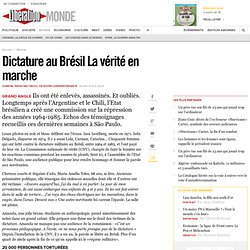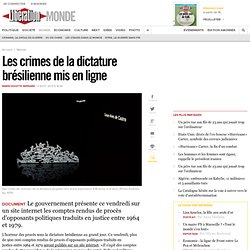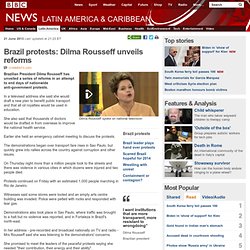

How Rand Paul Bailed on His Bold Plan to Reform Big-Money Politics in Washington. J.

Scott Applewhite/AP Photo This past weekend—days after Mother Jones revealed video of Sen. Rand Paul (R-Ky.) claiming that Dick Cheney exploited 9/11 to start the Iraq War to boost profits for Halliburton, the military contractor where Cheney had been CEO—Paul claimed in interviews with ABC News and Business Insider that he had never questioned Cheney's motives.
He insisted he had merely noted that Cheney's Halliburton ties had posed the "chance for a conflict of interest. " Paul was spinning—not acknowledging the actual comments. On March 2, 2010, Paul appeared on CNN, and host Rick Sanchez asked him what he would do about the "unbelievable amounts of money that are being paid from certain industries into the campaign coffers of certain politicians…and how are you going to deal with that, if you get elected? " I think that I have a cure for it actually that will pass constitutional muster. Paul's critique was reminiscent of the position Sen. Dictature au Brésil La vérité en marche. Leurs photos en noir et blanc défilent sur l’écran.

Iara Iavelberg, morte en 1971. Ieda Delgado, disparue en 1974. Il y a aussi Lola, Carmen, Catarina… Cinquante femmes qui ont lutté contre la dictature militaire au Brésil, entre 1964 et 1985, et l’ont payé de leur vie. La Commission nationale de vérité (CNV), chargée de faire la lumière sur les exactions commises pendant les années de plomb, tient ici, à l’assemblée de l’Etat de São Paulo, une audience publique pour leur rendre hommage et donner la parole aux survivantes. Cheveux courts et dégaine d’ado, Maria Amélia Teles, 68 ans, se lève.
Amanda, une jolie brune, étudiante en anthropologie, prend minutieusement des notes dans un grand cahier. 20 000 personnes torturées Mine studieuse et lunettes rondes, Silvania, une autre étudiante, se réjouit que le tabou saute. Quelque 30 000 des 70 000 demandes de réparation ont déjà été traitées. Dix-sept Etats du Brésil ont créé leur propre commission de vérité pour l’aider. Les crimes de la dictature brésilienne mis en ligne. L'horreur des procès sous la dictature brésilienne au grand jour.

Ce vendredi, plus de 900 000 comptes rendus de procès d’opposants politiques traduits en justice entre 1964 et 1979 seront publiés sur un site internet. «Il s’agit des comptes rendus de 710 procédures de la répression menées devant le Tribunal militaire supérieur, accompagnés de photos, de vidéos et d’autres documents qui illustrent les abus commis pendant la dictature», a expliqué jeudi le ministère public fédéral dans un communiqué. Ce projet, appelé «Brasil : nunca mais digital» [Brésil: plus jamais - numérique], exploite une base de données de vidéos, photos et documents témoignant du sort de plus de 7 000 Brésiliens arrêtés, condamnés et parfois éxécutés par la Cour martiale suprême, entre 1964 et 1979.
L'Université méthodiste de Sao Paolo a réalisé cette vidéo à l'occasion du lancement du site «Brasil nunca mais digital», vendredi 9 août. L’armée n’avait bien sûr jamais prévu de dévoiler ces comptes rendus. Argentina's High Court Clips Kirchner's Wings. In a stunning decision last week, the Argentine Supreme Court struck down an attempt by President Cristina Kirchner to submit the country’s judiciary to political control by the executive.

Many saw Kirchner’s reform legislation, which the court ruled unconstitutional, as an attempt by the president to open the door to a third term in office. The ruling gives wings to the growing internal opposition to Kirchner’s turbulent style of populist government, which has produced acute inflation, loss of foreign investments, and conflicts over press freedom and the rule of law. The dissent has even reached into the ruling peronist movement, where a new generation of leaders, mainly popular mayors, have rejected Kirchner’s reelection. A legislative election in October will determine whether the opposition will achieve control of Argentina’s bicameral Congress and end a decade of political dominance by the Kirchner faction. Personality politics will almost certainly play an important role. Brazil protests: Dilma Rousseff unveils reforms. 21 June 2013Last updated at 21:23 ET Dilma Rousseff spoke on national television Brazilian President Dilma Rousseff has unveiled a series of reforms in an attempt to end days of nationwide anti-government protests.

In a televised address she said she would draft a new plan to benefit public transport and that all oil royalties would be used in education. She also said that thousands of doctors would be drafted in from overseas to improve the national health service. Earlier she held an emergency cabinet meeting to discuss the protests. The demonstrations began over transport fare rises in Sao Paulo, but quickly grew into rallies across the country against corruption and other issues. On Thursday night more than a million people took to the streets and there was violence in various cities in which dozens were injured and two people died. Protests continued on Friday with an estimated 1,000 people marching in Rio de Janeiro. Continue reading the main story. 18 Cuban Propaganda Posters Of The ‘60s And ‘70s.